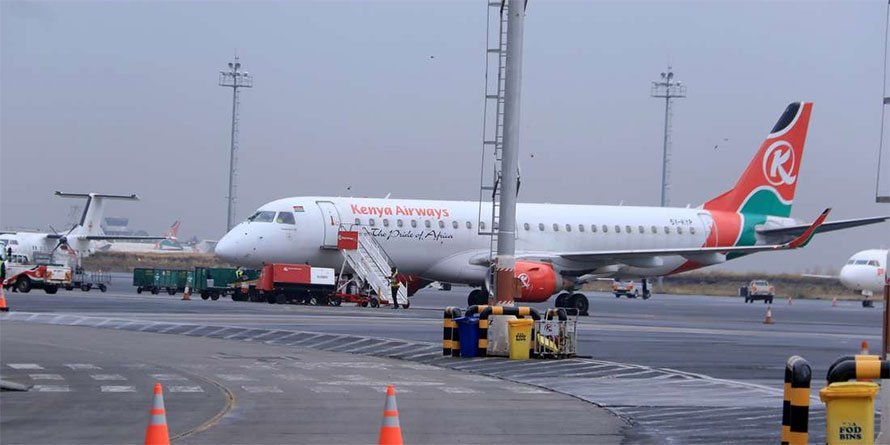A Kenya Airways aircraft at JKIA. FILE PHOTO | NMG If you asked me to give you the main reason Kenya Airways has remained in financial doldrums for a whole seven years, I will answer without thinking: inability by the main shareholder — namely, the government — to face up to the scale of the company’s problems and unwillingness to take hard decisions.
In the face of the Covid-19 pandemic, airlines world over have been busy rightsizing their businesses by reducing fleet sizes, grounding planes, cutting unprofitable routes and executing massive staff lay-off.
I recently read somewhere that Emirates fired 800 pilots in a single day while British Airways recently sacked 350 pilots and put another 300 in a pool for rehire. Air France is said to be planning to lay off 7,600.
When an airline is forced by circumstances to reduce its fleet size, ground its planes and close unprofitable routes, staff lay-offs become inevitable.
It seems to me that one of the reasons Kenya Airways has been in financial trouble for a long time is because its management does not have the flexibility to respond appropriately and urgently to situations that come up abruptly such as the case of the Covid-19 pandemic.
In the wake of the pandemic, the company conducted a comprehensive evaluation of its assets, network and staff to determine what needed to be cut and brought in line with a drastic reduction of the business.
From an internal document I recently came across, that evaluation came to the conclusion that the business had to be rightsized on multiple fronts, including massive staff lay-off.
Scaling down the operations will be the easy part. Yet when it comes to shedding jobs, the company will need public support and to secure political will.
The scaling down proposal has a formidable enemy in the pilots union. Just how disruptive the union came to the fore in October 2016 when union leaders mobilised members to a strike where they demanded the exit of former CEO Mbuvi Ngunze, and ex-chairman of the board, Dennis Awori.
Initially, Transport Cabinet Secretary James Macharia insisted that he would not sit at a table with the leaders of the pilots’ union to discuss the removal of the chairman and the CEO.
But at the end of the day, the minister was forced to eat humble pie. That episode served to illustrate the political clout of leaders of the pilots union and the links and […]
